July is Both Disability Pride Month and Mad Pride Month: Happy Bastille Day!

[ad_1]
The Mental Health Subcommittee for a major cross-disability organization has recommended supporting both Disability Pride Month and Mad Pride Month in July. As a psychiatric survivor quadriplegic, the bridges between Mad Pride and Disability Pride are crucial to my literal “lived experience.”
The National Council on Independent Living (NCIL) is celebrating its 40th anniversary as one of the largest and longest-running grassroots advocacy nonprofits run by and for people with disabilities. NCIL’s Mental Health Subcommittee unanimously voted on 28 June: “We recommend to the NCIL board & others to support both Disability Pride Month and Mad Pride Month: Both are July!”
The Mad Pride Movement is Alive and Growing
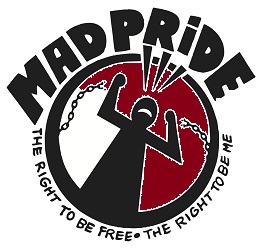
Today is July 14, Bastille Day, which psychiatric survivors and mental health consumers have used for decades as a unifying day to protest human rights violations and celebrate the human spirit. This date is a good time to reflect on Mad Pride.
Mad Pride is an informal, international mass movement, originating in Toronto, Canada and London, England in the early 1990s, celebrating our diverse identities as people labeled “mad.” Some years Mad Pride festivities, marches, parades, gatherings, etc. have been frequent, other years not so much.
Mad Pride Switzerland just held its Mad Pride Parade in Bern last month, on 18 June, as they have in several past years. More than 1,000 participants filled the streets for two blocks, complete with three bass drums, snare drums, whistles, balloons, matching umbrellas, signs, and floats. Check out the festivities in this video: https://youtu.be/G6XyX6un6MQ
On 28 May 2022, a Mad Pride March was again held in Mexico City. The sponsors were la Redesfera Latinoamericana de la Diversidad Psicosocial & la Red Orgullo Loco México. You can email the organizers here: [email protected]. Mad In America covered a Mad Pride Mexico event in 2019: https://www.madinamerica.com/2019/09/mad-pride-rises-in-mexico/
Mad Pride Chile (Orgullo Loco Chile) recently held a Zoom discussion on 22 June about the impact of electroshock lived experience on human rights. Mad Pride Chile runs an Instagram page here: https://www.instagram.com/orgulloloco_chile
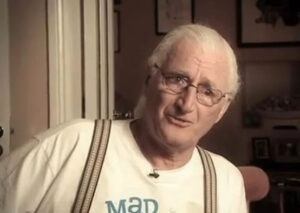
In the past, Ireland has had some of the biggest Mad Pride events, largely because of the leadership of Cork poet and psychiatric survivor John McCarthy [1950–2012]. You can find videos on YouTube about Mad Pride Ireland festivals in parks throughout Ireland. John often talked about the “normality of madness and the madness of normality.” David McCarthy, John’s son, wrote to me, “There is an event in Cork on July 17th, 2022, Joy in the Park. It is in memory of a young lady lost to suicide last year. They are copying our Mad Pride Day format and will have the John McCarthy Memorial Stage, which is lovely. It’s comforting to know his memory still touches so many people!”
https://www.echolive.ie/entertainment/whatson/arid-40880891.html
Why MAD Pride Month in July?
Mad Pride events have been held throughout the year. For instance, Mad Pride Seoul in Korea chooses World Mental Health Day, October 10, for their myriad performance and parade events. But, MindFreedom Oregon, an Affiliate of MindFreedom International, for several years has called for July to be Mad Pride Month as a special focus for mad organizers.
The month of July has many connections to the movement for mental health consumers/psychiatric survivors (C/S), here are a few:
In 1981, some activists in New York State were looking for a day to hold an annual protest in Albany of the mental health system. At first, they were about to choose July 4, but psychiatric survivor Myra Kovary encouraged them to choose a non-US-centered date, Bastille Day, July 14. C/S movement groups still often choose events on July 14. In 2008, Myra described her experience here: https://mindfreedom.org/kb/bastille-day-and-mh-liberation/
When MindFreedom International looked for a week to celebrate the concept, invented by Martin Luther King, Jr., of “creative maladjustment,” they chose a week from July 7 to 14.
By happy coincidence, the birthdate of one of the most amazing psychiatric survivor activists in history, Leonard Roy Frank [1932–2015], is on July 15.
As we have learned more about the often-obscure history of the Mad Pride Movement, Wikipedia carried an interesting fact about one of the first known psychiatric survivor groups: “On 7 July 1845, Richard Paternoster, John Perceval and a number of others formed the Alleged Lunatics’ Friend Society.”
And in Oregon, of course, the infamous Oregon Country Fair (OCF) is always shortly after the 4th of July. MindFreedom has held Mad Pride events in the heart of OCF, the Community Village, for many years, and will again this year. Dissident physician and psychiatric survivor Patch Adams has often spoken, but will not be at the fair this year. In the past, the late dissident psychiatrist, Carl Hammerschlag, has also joined Patch.
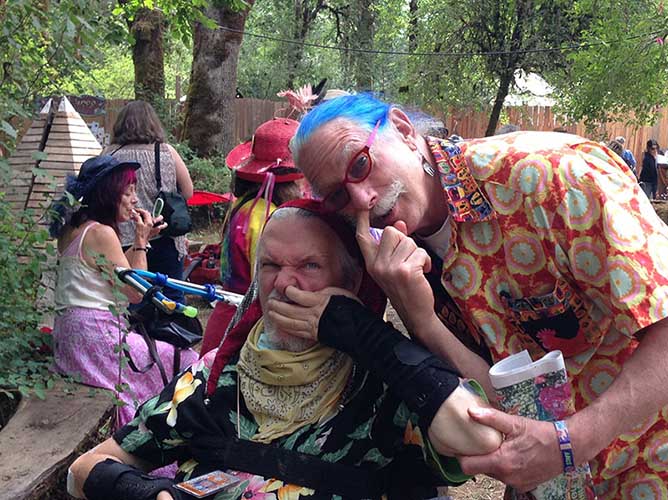
So, July was the obvious choice for Mad Pride Month.
Disability Pride Month, Too?
Meanwhile, the disability movement was engaged in a wonderful simultaneous action: Naming July as Disability Pride Month. The Americans with Disabilities Act (ADA) was signed into law back on July 26, 1990. To celebrate, Boston, Chicago, New York City, and others began holding Disability Pride marches and parades. Because the ADA was signed in July, when disability groups decided to devote a month to Disability Pride, again the obvious choice was July.
I can easily imagine someone thinking, “What is there to be proud about when you have a disability? Proud to lose a leg? Proud to go blind?” Disability Pride does not mean every impairment one might experience is somehow splendid. Here is the description of disability pride from the organization, AmeriDisability: “‘Disability pride’ has been defined as accepting and honoring each person’s uniqueness and seeing it as a natural and beautiful part of human diversity.”
When I broke my neck one decade ago, I drew upon the lessons I learned about empowerment from decades in the psychiatric survivor movement. I am proud of applying these skills when I needed them most. There are many reasons to have Disability Pride: Our resilience, the amazing global disability community, the uniqueness of every human being…
Why Mad Pride?
I am a psychiatric survivor who was involuntarily placed in psychiatric institutions five times. I experienced forced psychiatric drug injections on a bare mattress in solitary confinement. After I finally got free of psychiatry, I spent decades rebelling against and resisting the bizarre, ridiculous, unscientific, goofy, demeaning labels found in the Diagnostic & Statistical Manual of the American Psychiatric Association (DSM). Twenty years ago, I helped lead a national hunger strike that challenged psychiatry’s medical-model basis for labeling. I still, after 46 years of being a psychiatric survivor activist, fight goofy psychiatric labeling.
So, some might ask, “If you rebel against labels, then isn’t ‘Mad Pride’ hypocritical?”
No. The psychiatric establishment generally runs away from the use of words like “mad” and “crazy.” Whole books could be written on the topic of language, but just let me say that the only love that I would consider real is being “madly in love.” Personally, since there is no official definition of the word ‘mad,’ I like what some activists suggest: M.A.D. stands for Marginalized And Disempowered.
Social change movements led by marginalized people must build bridges to all communities of disenfranchised people, such as LGBT and BIPOC. Sadly, like many other social change movements, our field needs more diversity. White males like myself tend to be over-represented. Increasing diversity and inclusion is a high priority for many C/S movement groups. What about building bridges to the disability movement, one of the biggest in the world?
Our liberation movement of psychiatric survivors and mental health consumers is now more than 50 years old in the US. For those truly interested in global nonviolent revolution, which I consider a necessity, we need people power, quickly. On June 14, 2022, in preparation for bringing up psychiatric human rights with the United Nations, there was a Side Event on “Remedy and Reparation for Institutionalization.” This event clearly emphasized the need to connect the C/S movement and the cross-disability movement to build the people power we need for true deep change. You may view this Side Event here: https://youtu.be/UOSp7I9z0Nk
Psychiatric Survivors and the Disability Movement
One of the surest absolute connections between the psychiatric survivor movement and the disability movement, is that we human rights activists claim that nearly every type of psychiatric oppression and goofy label results in disability. This should be obvious, because oppression causes trauma. And further, electroshock causes massive head injury and memory loss. That sounds like a disability to me.
I am ashamed that a few of my fellow psychiatric survivors have a kind of “brain bigotry” on the issue of the disability movement, also known as ableism. These psychiatric survivors say that because their psychiatric labels are fictional, they cannot and should not be oppressed and forcibly treated. Hey, here’s a concept for you: Whether or not your label is goofy or true, you do not deserve oppression!
Many of us psychiatric survivors point out that a lot of our psychiatric labels are fictional, like the unicorn. But folks, even if you are missing a limb and are obviously disabled, you deserve human rights, choice, dignity, respect, humane alternatives, peer support, and voluntary healthcare.
Disability Leaders: Watch Out for Sanism
Thought-leaders in the disability movement, such as activists, authors, academics, back starting in the 1970s, often spoke about the “social model of disability” replacing the domination of the medical model. In other words, attitudes and structures in our society may often be the actual origin of disability.
This diversity of perspectives in what has been thought of as the “physical disability movement” is even more important in building a true cross-disability movement which welcomes those who have experienced a mental disability label. Some of us in the consumer/survivor (C/S) movement choose to take psychiatric medications and agree with our diagnosis. Others are disgusted by both psych drugs and psych diagnoses. Still others reject and accept different elements of their psychiatric treatment. The common framework here is choice and human rights.
Unfortunately, I have seen some disability leaders falsely believe that when an activist criticizes psychiatric drugs, they are somehow pressuring others to reject their psychiatric care. Indeed, some individuals flatly reject the whole mental health industry. However, almost every C/S group I’ve seen embraces choice, human rights, and diversity. In my experience, individuals who choose to take psychiatric drugs are often totally comfortable and accepted in C/S advocacy organizations. We need to wrap our minds around the complexity of individual choice. Again, we unify around human rights.

Dissident mental health counselor, Ron Unger, addresses the importance of embracing the seeming paradox of sometimes rejecting what is called “madness,” and sometimes celebrating it. He said that, unlike Gay Pride (he himself is in a gay marriage), Mad Pride is more complex, and it is difficult to know where to always draw the line. Ron told me, “It is a tricky topic, since some people are definitely proud of the mental states that are called mad, while others see the madness itself as a tragedy but are proud of their resilience etc. around it. So I was trying to address the full range of meanings around it and make sense of them.” Ron gave a webinar last year for the International Society for Psychological and Social Approaches to Psychosis (ISPS-US), entitled “Exploring the Promise and the Pitfalls of Mad Pride,” which you may view for free here: https://youtu.be/WSbtEJuWQdY
You Can Be a Leader in Both Mad Pride Month & Disability Pride Month!
It is totally OK if you personally choose not to celebrate Mad Pride Month or Disability Pride Month. Perhaps there should be a “Normal Shame Month”? Let me know if anyone organizes that, I’m too busy.
However, many of us do want to celebrate our differences, both in Mad Pride and Disability Pride. I will not impose a psychiatric label on another person unwillingly. But please do not try to impose the label of “normal” on me. What is generally called “normal” is wrecking the planet’s environment and threatens life on Earth. What is generally called “normal” is actually, from my perspective, the worst, most dangerous altered state ever.
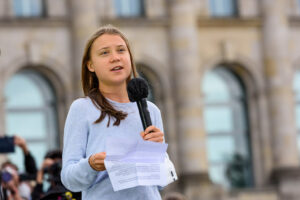
As a psychiatric survivor with extreme physical disabilities, I love the idea of building bridges between Mad Pride and Disability Pride. Think of one of the key leaders in fighting the climate crisis: Greta Thunberg. When Greta was younger, she and her family wrestled with many severe mental and emotional problems, including periods of not eating, isolating herself with just a few close family members, screaming and crying for long lengths of time, etc. Greta personally accepts the diagnosis of “autism.” But Greta’s perspective is that being “on the spectrum” is her “superpower,” because her uniqueness helps her see through the web of lies that seemingly control “normal people.”
One aspect of the climate crisis that I have found particularly frustrating is that the general public, perhaps because they embrace the old-fashioned linear reductionist paradigm, does not seem to understand the complexity of tripping many cascading feedback loops. Especially if this idea is new to you, I highly recommend viewing the five short documentaries narrated by Richard Gere. Greta found these so important that she and the Dalai Lama introduced them. View these videos here: https://feedbackloopsclimate.com/
July is now hosting a third related theme: BIPOC Mental Health Month. Each year, the nonprofit Mental Health America “develops a public education campaign dedicated to addressing the mental health needs of Black, Indigenous, and People of Color (BIPOC).” More info: https://www.mhanational.org/BIPOC-mental-health-month
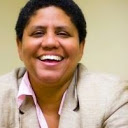
The NCIL Mental Health Subcommittee, led by African-American community organizer Yvonne Z. Smith, has become one of the main critical intersections to build cross-disability bridges between the disability & mental health consumer/psychiatric survivor communities.
With the support of MindFreedom International and their Executive Director, Ron Bassman, this call for supporting both Disability Pride Month and Mad Pride Month in July will go out far and wide.
You can find resources and links about both Mad Pride and Disability Pride on my personal blog here: https://davidwoaks.com/bridging-mad-pride-disability-pride
I also look forward to comments, ideas and discussion on my personal blog.
[ad_2]
Source link
